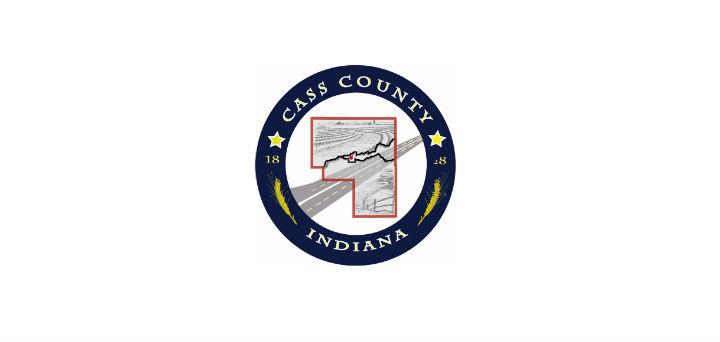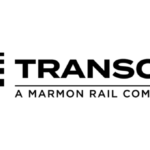Last Updated on August 18, 2022 by Office of Indiana Governor Eric J. Holcomb
INDIANAPOLIS — Today, Governor Eric J. Holcomb and Indiana Secretary of Education Dr. Katie Jenner joined Lilly Endowment Inc. to announce the state’s largest-ever financial investment in literacy, expanding Indiana’s commitment to support literacy development for Hoosier students. This combined investment from the state and Lilly Endowment of up to $111 million will support early literacy development using proven teaching strategies aligned with the Science of Reading.
The state will:
- Support the deployment of instructional coaches to schools throughout Indiana;
- Offer stipends to teachers who participate in professional development focused on the Science of Reading;
- Provide targeted support for students who need the most help in improving their reading skills; and
- Create a literacy center focused on Science of Reading strategies.
Lilly Endowment has approved a grant of up to $60 million for this effort. These efforts will support the state’s goal of having 95 percent of Indiana’s students achieve a passage rate on IREAD-3 by 2027.
“Lilly Endowment’s incredible investment today represents a long-term commitment to Indiana’s long-term success,” said Governor Holcomb. “Reading is fundamental to each student’s lifelong opportunities, and it’s foundational to the core of our state’s future. This immense investment will make an enduring impact on our youngest generation of Hoosiers, empowering them with fundamental skills that they will carry with them throughout their lives.”
The stakes are high because more Indiana students must read well in order to support their long-term academic success and the success of the state’s future. Results from Indiana’s statewide third grade reading assessment, IREAD-3, indicate that nearly one in five Hoosier students (18.4 percent) have not yet mastered foundational reading skills by the end of grade three. These foundational skills set the groundwork for more robust reading comprehension, which is essential for future learning in later grades and throughout life.
More concerning is the fact that the most recent scores from the state’s summative assessment for grades three through eight (ILEARN) and NAEP (National Assessment of Educational Progress) – tools which measure deeper reading proficiency – indicate that even more Indiana students will need additional support in order to read and comprehend increasingly complex materials, conduct research and write effectively.
In 2022, only 40.7 percent of Indiana third graders and 41.1 percent of Indiana fourth graders passed the English/Language Arts portion of ILEARN. Learning gaps in reading proficiency persist as demonstrated by 2019 NAEP results: only 17 percent of Black students, 24 percent of Hispanic students and 24 percent of students from low-income households scored proficient or better. “Far too few Indiana third graders have the necessary reading skills that they will need for future academic and life success,” said N. Clay Robbins, chairman and CEO. “Although we understand that many factors affect reading achievement, we are compelled by the research showing that Science of Reading strategies can help all students learn to read better and address equity gaps in reading. Knowing the important contributions teachers make every day in their classrooms, we want to make sure they are fully supported in this important work to help students learn to read well.”
Lilly Endowment’s grant, in addition to IDOE’s investment of approximately $26 million in Elementary and Secondary School Emergency Relief (ESSER) II funds, aims to provide Science of Reading focused instructional support for educators in partnership with the University of Indianapolis’ Center of Excellence in Leadership of Learning (CELL) and the Hunt Institute.
The Science of Reading is a research-based strategy that integrates instructional practices with efforts focused around phonics, phonemic awareness, fluency, vocabulary and comprehension. Decades of child development and brain research emphasize the need for all of these components to be taught to students to ensure they have the reading skills necessary for future academic and life success.
These funds will:
- Provide support to educators through instructional coaching in the Science of Reading – Through funding from the Indiana Department of Education (IDOE), 54 schools across the state are piloting the Science of Reading instructional coaching this fall, with recruitment, oversight and training provided by CELL. With the additional financial support from Lilly Endowment, IDOE expects to expand the reach of this effort to about 60 percent of elementary schools by the end of the 2025-2026 school year. Schools can opt-in to instructional coaching based on student need and school interest.
- Provide targeted support for Indiana students experiencing the greatest reading challenges – Many students experience reading challenges, including students in special education, students of color, students whose primary language is not English and students from low-income households.
- Establish a literacy center at IDOE focused on the Science of Reading – IDOE will recruit additional staff to provide Science of Reading technical assistance to schools, including resources through the Indiana Learning Lab. The literacy center will serve as a one-stop-shop to oversee literacy efforts, manage research and evaluation efforts and maintain quality technical assistance for educators.
- Provide stipends for teachers who participate in professional development regarding the Science of Reading – As Indiana’s early elementary school educators work to implement the Science of Reading in classrooms across the state, IDOE will provide financial incentives of up to $1,200 per teacher to allow them to opt in to additional training.
The state’s team will work with the Hunt Institute, which has nationally recognized expertise in the Science of Reading, to provide training and content for teachers. In addition, an advisory panel of national experts in Science of Reading will regularly advise IDOE on all of these efforts.
Future teachers entering the state’s elementary school system should be prepared to use Science of Reading instruction in their classrooms as well. To that end, in addition to the $60 million grant to IDOE, Lilly Endowment will make available up to $25 million to support Indiana’s colleges and universities incorporate or enhance Science of Reading methods into their undergraduate elementary teacher preparation programs. Lilly Endowment will provide further information about this initiative to Indiana colleges and universities in the coming weeks.
“We know that students first learn to read, and then they read to learn,” said Dr. Katie Jenner, Indiana Secretary of Education. “This shift typically occurs after a student’s third grade year. However, in Indiana, too many of our students are concluding third grade without foundational reading skills. Fewer still have the reading skills necessary for long-term academic success. As a state, including our schools and community partners, we must lean-in to urgently and intentionally address this challenge. In partnership with Lilly Endowment, we have an unprecedented opportunity to provide Indiana’s educators with the support and tools they need to truly move the needle for Indiana students, ensuring all students receive the foundational reading skills that make all other learning possible, both in the classroom and beyond.”
-30-
About Lilly Endowment, Inc.
Lilly Endowment Inc. is an Indianapolis-based, private philanthropic foundation created in 1937 by J. K. Lilly and his sons, Eli and J.K. Jr., through gifts of stock in their pharmaceutical business, Eli Lilly and Company. While those gifts remain the financial bedrock of the Endowment, the Endowment is a separate entity from the company, with a distinct governing board, staff and location. In keeping with its founders’ wishes, the Endowment supports the causes of community development, education and religion. Although the Endowment funds programs throughout the United States, especially in the field of religion, it maintains a special commitment to its hometown, Indianapolis, and home state, Indiana.
About CELL Created in 2001, the Center of Excellence in Leadership of Learning (CELL) at the University of Indianapolis focuses on helping educators transform learning, teaching, and leadership across all of Indiana’s K-12 schools and universities. CELL’s work has set them apart by being the leading convener and advocate for innovative education change in Indiana. By providing leadership that is both cutting-edge and action-oriented, CELL is able to foster change across the entire educational ecosystem. Through strategic public and private partnerships, CELL enables high-quality innovations and opportunities for all of Indiana’s schools, educators, and students.
About Hunt Institute The Hunt Institute has over 20 years of working to provide an equitable education to every child. In 2016, after 16 years as a nonpartisan leader in K-12 education policy and political leadership, The Institute evolved to broaden its policy focus to encompass the full continuum, from prenatal care and early childhood to postsecondary education and the workforce. Most recently in 2019, The Institute expanded its services to include professional development with local school districts to bridge policy to practice. In alignment with our core beliefs, The Institute creates meaningful platforms to engage policymakers across our work. We are unapologetic about the importance of equity—in educational access, quality, and opportunity— and it is at the core of the work we do.
SOURCE: News release from Office of Indiana Governor Eric J. Holcomb





